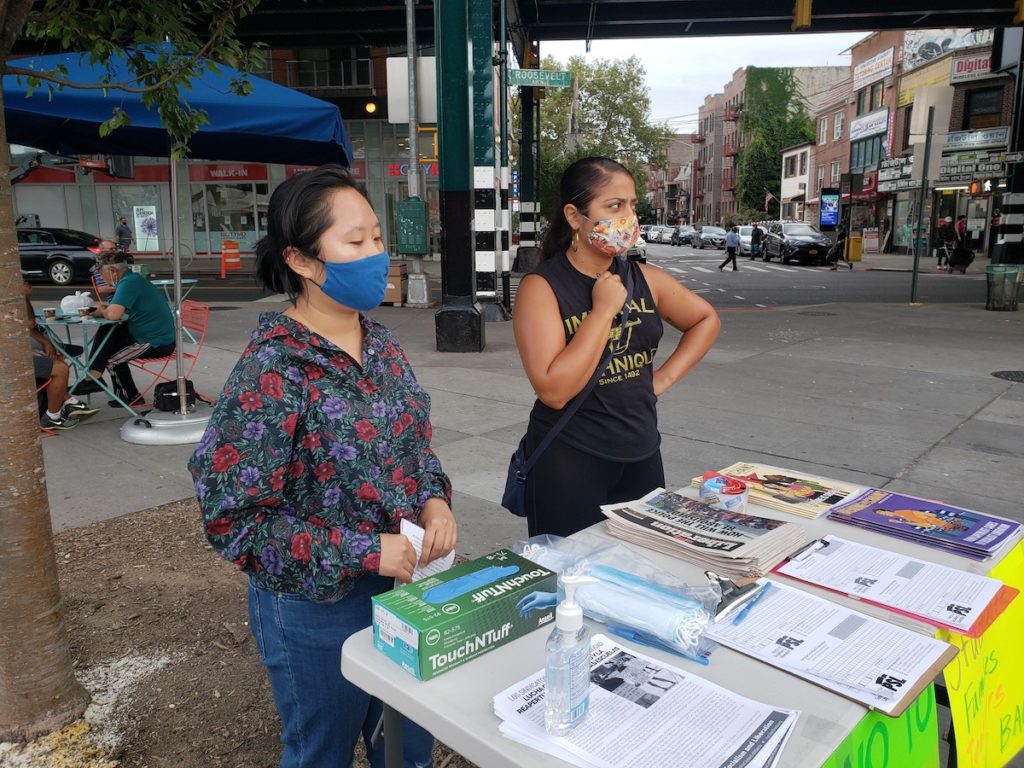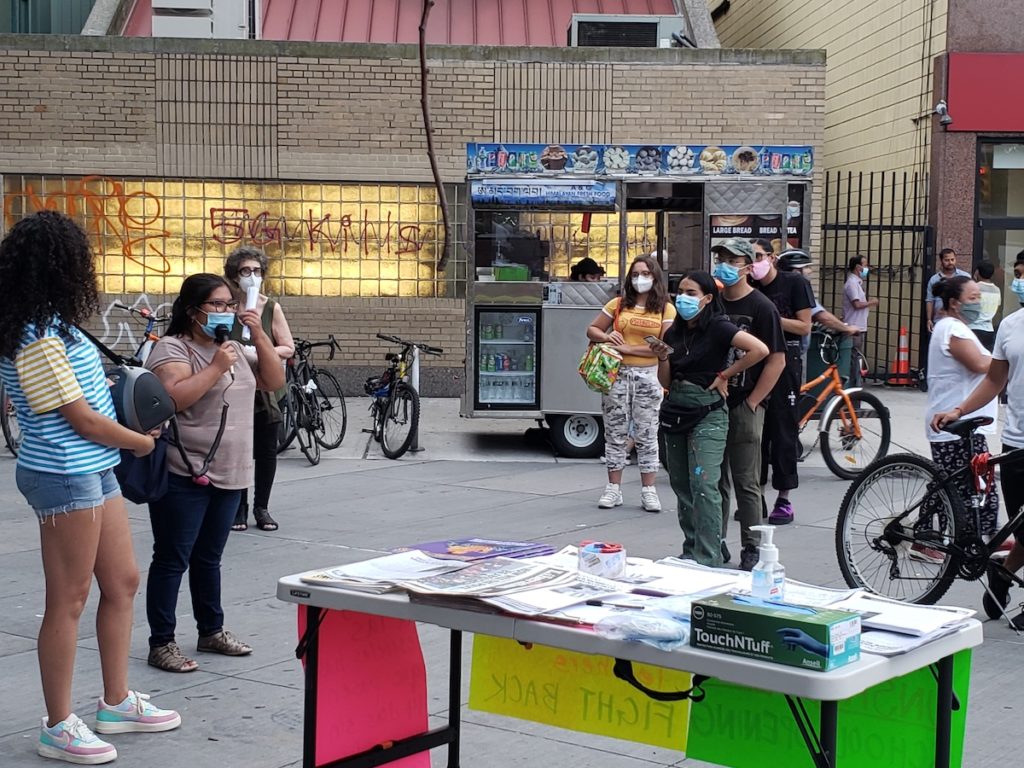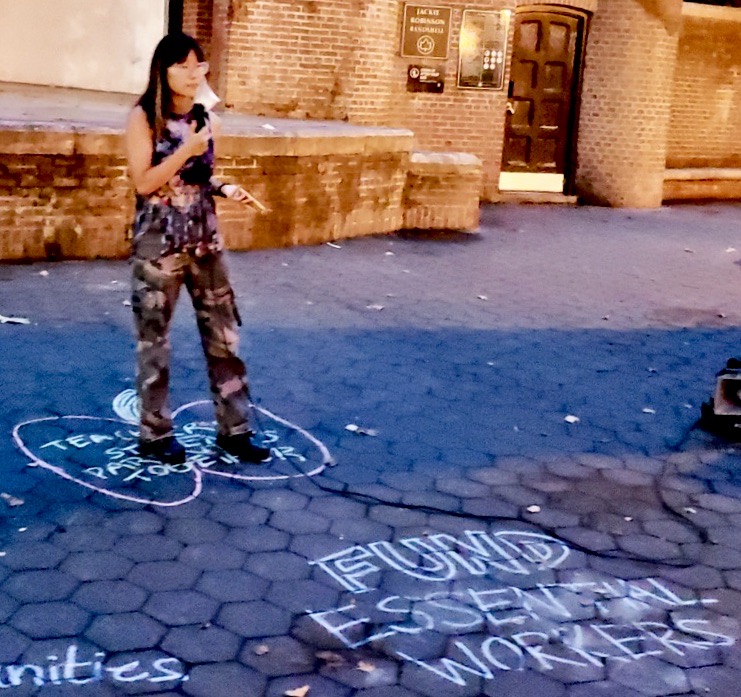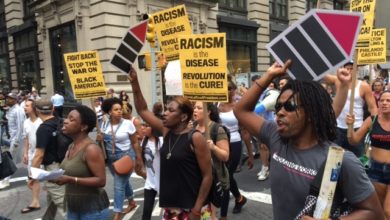For weeks, educators and families have fought to stop the in-person opening of New York City Schools. On Sep. 1, the leadership of the United Federation of Teachers struck an uneasy deal with officials to reopen schools two weeks later than originally planned, and with more resources. But many expect city government will fail to deliver on these already lacking promises.
Also agreeing to the deal was leadership from the Council of School Administrators and Supervisors, representing principals, and from District Council 37, which represents cafeteria workers, contact tracers, and school nurses.
Frustrated with the agreement and intimidation from politicians, many school workers are now organizing to rally community support and fight for safe schools and needed resources for families, students and workers.
Organizers pushed for standards as high as no new cases citywide for 14 days (a threshold common in many other countries) before children go back to schools. While this was rejected, the deal does include a 50-point safety plan from the UFT, with requirements such as “a room-by-room review of ventilation effectiveness, an isolation room and a COVID-19 building response team.” If a building fails to meet these points, it will supposedly remain closed.
Crucially, teachers will enforce this safety plan at the schools. If the schools open without meeting these basic safety points, educators plan to organize students and parents to fight back.
Grass roots organizing continues
Meanwhile, opposition to the Sept. 21 opening continues. The UFT’S Solidarity caucus has filed an injunction to keep schools fully remote. Speakouts, media events, rallies, and community outreach have continued since the deal, organized by the MORE (Movement of Rank and File Educators) caucus within the UFT, the Party for Socialism and Liberation and organizations and individuals in the new NYC School Workers Solidarity Campaign.

The PSL is holding speakouts around the city, and passing out leaflets in six languages updating communities on the issues involved in the school openings.
At a recent street event in Brooklyn, Shaniqua Pippen, a public school teacher and PSL organizer explained, “Reopening schools is not about our young people having their needs met. Reopening schools is about the economy. It is a way to get the parents of the 1.1 million students back into work so that the economy no longer has to suffer, not so that communities and students no longer have to suffer.”
Decades of budget cuts make plan a massive risk
Though all hope that the city provides the necessary funding and resources, the track record of city officials does not inspire confidence. There is still no documented evidence that the necessary supplies have been delivered or that buildings have passed inspections. In many schools, there is still no hot water (or even drinkable water), nor soap.
Air ventilation has been identified as a key issue to prevent COVID-19 spread, but as of this writing union leaders have not received reports promised from the Department of Education on the condition of ventilation in schools. A recent “rigorous test” went viral when the test for airflow was revealed to be nothing but a piece of toilet paper attached to a yardstick. Many schools have lacked good ventilation for years with no repairs, leaving teachers doubtful that fixes will be made now.
Union members are demanding decent funding to guarantee these basic resources, after a long history of education budget cuts. Currently, 20% of the city budget is withheld and city officials are threatening to make this a permanent cut. Rather than taxing the wealthy in this city of Wall Street, city officials’ only proposed solution is to borrow money. Some 22,000 city workers now face layoffs, as do up to 9,000 teachers.
Communities united in opposing reopening
In their push for an unsafe reopening, city officials have attempted to pit teachers against families all summer, but in truth, they stand united in opposing the school reopening. Teachers have remained in close contact with parents all summer, without compensation, helping them navigate this economic and health crisis as well as navigating what to do for the start of school.
A recent poll from Sienna College found that a majority of New Yorkers (62%) believe a full reopening of schools is too risky. Already, close to 40% of families have opted-in to the DOE’s plan for 100% remote learning. This is an increase over several weeks from a 20% opt-in rate.
Any where from S79 to as many as 100 teachers have died from COVID-19 since March. This number rises sharply when other school workers are included, to possibly more than 300 deaths. This is to say nothing of the many students, families, and community members who were infected. If De Blasio had closed school buildings one week earlier in March, then around 20-50,000 people could have been saved from COVID-19 infection, which amounted to about 17,000 deaths.
PSL speakouts build support for educator struggle
The Party for Socialism and Liberation is organizing actions throughout the city, mainly through open speakout events, sharing the danger of an unsafe reopening to all New Yorkers.

At such an event on Aug. 31, in Jackson Heights, Queens, a flyer was distributed with a list of demands for a safer school reopening, sparking conversation with families and community members and sharing the many ways in which they can be involved in this fight. With Queens being the most multilingual area in the world, flyers were translated into English, Spanish, Chinese, Korean, Arabic and Bengali.
In an impassioned speech, high school teacher Cathy Rojas explained, “If [NYC Mayor] DeBlasio would’ve closed the schools one week earlier, we could’ve saved over ten thousand lives. But he chose not to. The reason for that is because he knows that if the schools are closed, the federal government has to extend unemployment, he has to give undocumented families aid, he has to figure out a way to feed families that can’t go to work because they have to take care of their kids.”

William, a community member and an NYC middle school math teacher, stepped forward to say, “How much do the people who talk about reopening actually care about the lives that are lost?”
Defund the police not the schools!
That same day in Bed-Stuy, Brooklyn, community members, teachers, and medical professionals spoke against the reopening and voiced their frustration with New York City Police Departments massive $10.9 billion budget, which drains resources from social services like schools.
“They have money for cops in our schools,” explained Kerbie Joseph, a PSL organizer from Crown Heights, Brooklyn. “Can you imagine the irony? Police officers that harassed us and kill us are gonna now occupy schools that should be closed in the first place!”
Simon, a medical health professional, joined in from the street to explain some of the risks: “One third of children of kids that end up in the hospital end up in the ICU. We’re sending kids potentially to their death. It’s believed they are greater incubators than adults. When they go back home, they’re more likely to infect others. So what this means is that this is an ignorant, foolish exploitative plan, to send these kids back to school.”
On Sep. 2 in Harlem,the weekly “Liberation Wednesdays” event focused on school reopenings, breaking down how the city’s budget planning process works.
Karla Reyes, a public school teacher and PSL organizer, updated the crowd on the union struggle: “The strike vote,” she mentioned, “ is off the table.”
Reyes emphasized that despite the current state of negotiations, the fight is far from over. Detailing that the 50-point checklist includes inspections of each school’s ventilation, PPE for all staff, and a 10-20% random sample of teachers and students being tested for Covid-19 each month, she spoke to how the struggle for a safe reopening will require banding together to ensure these needs of the people are met. Public schools are not simply going to be collateral damage for the lack of planning on the part of local government.
Reyna Wang, PSL organizer and former Park Ranger, spoke about the impact that budget cuts had on both city jobs and invaluable programming, like outdoor after school programs that were cut. Reyna was an essential worker with the city, distributed masks and food with no hazard pay until she was laid off with little notice due to the $9 billion dollar deficit in the city budget passed on Jun. 30.
“At the end of the day, the federal government has no money to pay us. Not like they bailed out the airlines at the start of the pandemic. Not like they loaned $500 billion to corporations in the last Covid-19 relief bill to bail them out. They do not care to support the lives of 22,000 people who kept New York City afloat, confirming that the state always serves the ruling class, and not the workers,” Wang said.
Wang also argued that there is not a scarcity of resources, even at the city level, pointing out that there is only one area of the budget that did not suffer cuts for the past 30 years of NYC budgets: the NYPD.

Further actions are planned across New York, showing that the weak reopening plan is not enough. If city government fails to provide the resources necessary to meet bare minimum reopening standards, the struggle will reignite again as teachers and families fight back.






